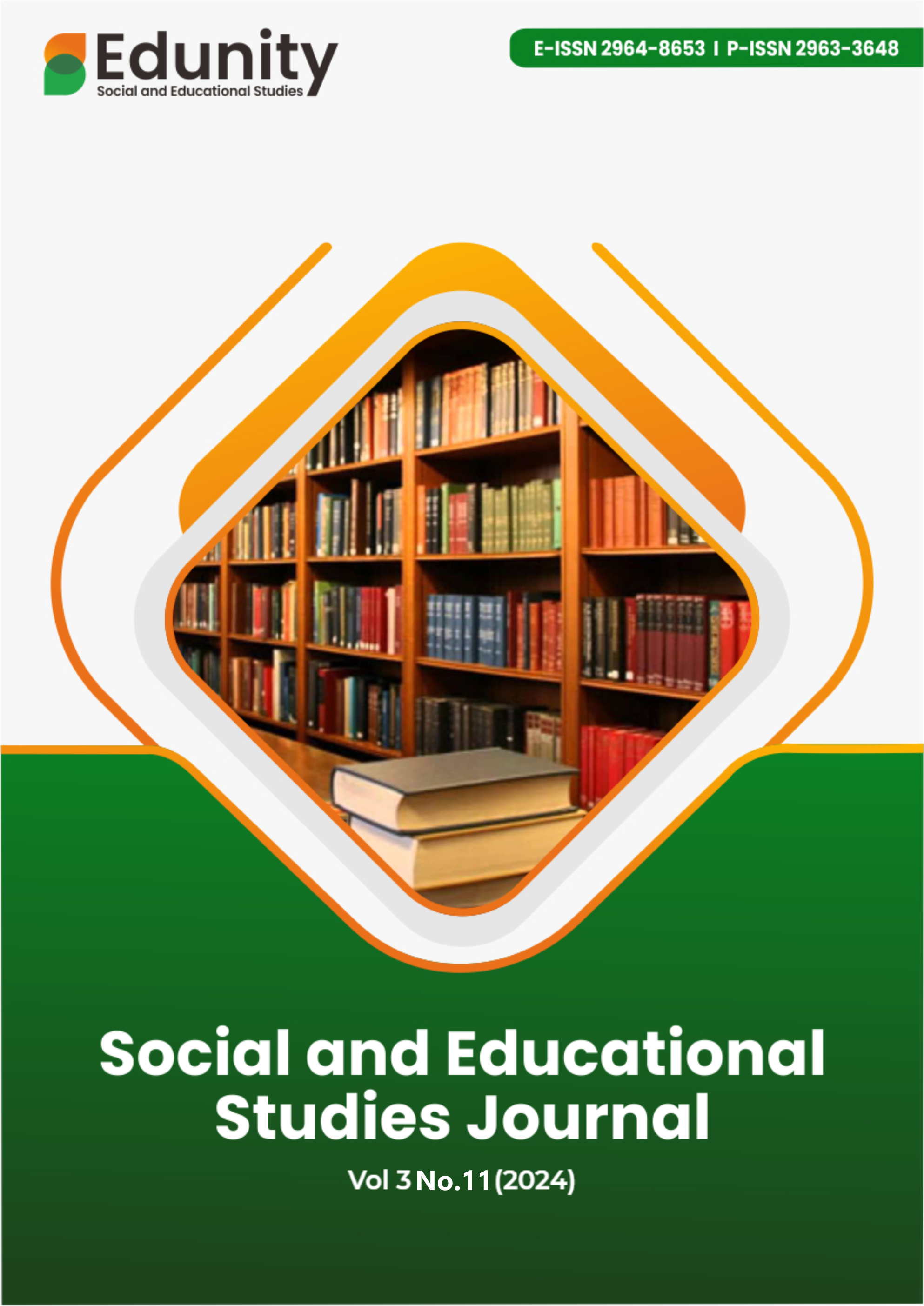Eradication of Land Mafia in Indonesia by the Ministry of Agrarian Affairs and Spatial Planning of the Republic of Indonesia or the National Land Agency
DOI:
https://doi.org/10.57096/edunity.v3i11.329Keywords:
Land Mafia, Ministry of Agrarian Affairs and Spatial Planning/National Land Agency (ATR/BPN), Eradication Efforts Against the Land MafiaAbstract
The land mafia in Indonesia is a complex phenomenon that harms society and has the
potential to disrupt social stability. This research aims to analyze the practices of land
mafia that occur in Indonesia and evaluate the eradication efforts by the Ministry of
Agrarian Affairs and Spatial Planning/National Land Agency (ATR/BPN). Land mafia
practices include certificate forgery, illegal land occupation, and document
manipulation that threaten the ownership rights of the community. This research uses
normative legal research methods, which involve the process of finding legal rules,
principles, and legal doctrines to answer the legal issues at hand. Furthermore, this
research also examines the policies and strategic steps taken by the ATR/BPN in
combating the land mafia, including the establishment of the Anti-Land Mafia Task
Force and the strengthening of land regulations. The results indicate that despite
various eradication efforts, challenges in law enforcement and inter-agency
coordination remain obstacles. Therefore, better synergy between the government,
society, and the private sector is necessary to create a transparent and accountable land
system. This research is expected to contribute to the development of more effective
policies in eradicating the land mafia in Indonesia and reinforcing legal protection for
the community.
References
Berenschot, W. (2022). Land-use change conflicts and anti-corporate activism in
Indonesia: A review essay. Journal of East Asian Studies, 22(2), 333–356.
Costalli, S., & Ruggeri, A. (2015). Indignation, ideologies, and armed
mobilization: Civil war in Italy, 1943–45. International Security, 40(2), 119–
Dagnes, J., Donatiello, D., Moiso, V., Pellegrino, D., Sciarrone, R., & Storti, L.
(2020). Mafia infiltration, public administration and local institutions: a
comparative study in northern Italy. European Journal of Criminology, 17(5),
–562.
Hamzah, H. (2016). Legal Policy of Legislation in the Field of Natural Resources
in Indonesia. Hasanuddin Law Review, 1(1), 108–121.
Hansen, S. (2023). A Sociolegal Analysis of Land Mafia Practices in
Construction Projects. Journal of Legal Affairs and Dispute Resolution in
Engineering and Construction, 15(3), 4523021.
Li, T. M. (2018). After the land grab: Infrastructural violence and the “Mafia
System” in Indonesia’s oil palm plantation zones. Geoforum, 96, 328–337.
Moreda, T. (2017). Listening to their silence? The political reaction of affected
communities to large-scale land acquisitions: insights from Ethiopia. In
Global Land Grabbing and Political Reactions’ from Below’ (pp. 51–74).
Routledge.
Mu’adi, S., Maksum, A., Hakim, M. L., & Umanailo, M. C. B. (2020). Transfer of
function agricultural land. Proceedings of the International Conference on
Industrial Engineering and Operations Management, 2568–2574.
Mubarok, M. M. (2024). Problems of Indonesia land and property mafia.
Lexovate: Jurnal Perkembangan Sistem Peradilan, 1(1).
Pinilih, S. A. G. (2018). the Green Constitution Concept in the 1945 Constitution
of the Republic of Indonesia. Mimbar Hukum-Fakultas Hukum Universitas
Gadjah Mada, 30(1), 200–211.
Purnawan, J. (2024). Comparative Positive Law and Islamic Law in Prosecution
of The Land Mafia. Proceeding International Conference on Law, Economy,
Social and Sharia (ICLESS), 2, 814–829.
RB, L. D., & Heliaantoro, H. (2024). Analysis of Natural Resources Contracts
Related to Article 33 Paragraph 2 and Paragraph 3 of the 1945 Constitution.
Siber Journal of Advanced Multidisciplinary, 2(2), 302–311.
Saputra, A., Sumarja, F. X., & Kasmawati, K. (2024). The Importance of Strong
Agrarian Law: Preventing and Overcoming Land Mafia in Indonesia.
International Journal of Multicultural and Multireligious Understanding, 11(2),
–23.
Sihombing, B. F. (2023). Critical Studies of the Land Mafia Practices: Evidence in
Indonesia. Beijing L. Rev., 14, 433.
Stedjan, S. P. (2015). Land is Not the New Oil: What the Nigerian Oil Experience
Can Teach South Sudan About Balancing the Risks and Benefits of Large
Scale Land Acquisition. Penn State Journal of Law & International Affairs, 3(2),
Wilson, D. B., Olaghere, A., & Kimbrell, C. S. (2018). Effectiveness of restorative
justice principles in juvenile justice: A meta-analysis. Inter-university
Consortium for Political and Social Research.

Downloads
Published
Issue
Section
License
Copyright (c) 2024 Amrullah Amrullah, Herman Bakir

This work is licensed under a Creative Commons Attribution-ShareAlike 4.0 International License.
Authors who publish with this journal agree to the following terms:
- Authors retain copyright and grant the journal right of first publication with the work simultaneously licensed under aCreative Commons Attribution-ShareAlike 4.0 International (CC-BY-SA). that allows others to share the work with an acknowledgement of the work's authorship and initial publication in this journal.
- Authors are able to enter into separate, additional contractual arrangements for the non-exclusive distribution of the journal's published version of the work (e.g., post it to an institutional repository or publish it in a book), with an acknowledgement of its initial publication in this journal.
- Authors are permitted and encouraged to post their work online (e.g., in institutional repositories or on their website) prior to and during the submission process, as it can lead to productive exchanges, as well as earlier and greater citation of published work.






